July 30, 2004
Sartre's record collection
On this chart discussion bubbling up at blissblog and Koons: the quote below from J-P Sartre . It was in the forties, I think, and Sartre had just been to the US and returned to France aghast that such a thing as the record charts existed.
'If he listens to the radio every Saturday and if he can afford to buy
every week's No. 1 record he will end up with the record collection of
the Other, that is to say, the collection of no-one ... Ultimately, the
record collection which is no one's becomes everyone's collection -
though without ceasing to be no one's.'
Sartre was recoiling from horror at the world that Baudrillard - and we - were born into.
Sartre's response is salutary, since it illustrates how strange something that is (for us) taken-for-granted appeared at the time.
As to the charts = market forces. I'm not convinced of this; I think it connects with the markets-anti-markets issue endlessly being debated (and for good reason) within ccru and currently being rehearsed over at hyperstition. The extent to which the charts are gerrymandered now because of domination by a few big players means that they are more of an anti-market than a market IMHO.
July 29, 2004
Glampirism
 |  |
This post arose from a chance conjunction. First of all, a couple of days ago, I bought the tremendously enjoyable NME Originals Glam special, which reproduces all the major articles on T-rex, Bowie, Roxy, Rod, Elton etc etc from the NME and MM in the early 1970s. Then, yesterday, somewhere in the interstices of Mark S's epic on noise, I stumbled upon this:
“Glam took vampire hunger as its counter-ideal to [Woodstock’s] affirmative Aquarian love-in, and reflected the Undead’s reproduction strategy — a recruitment drive thick with mutual hostility, manipulative envy, sentimental denial and endless role reversals — straight back into the fan-star relationship it was so pitilessly modelling.”
Glam as vampirism?
Yessssssss
My saying last week that Ferry was the seventies icon was of course wrong - or rather wishful thinking. (But you knew that). The definitive 70s icon was Bowie, naturally. I've never warmed to Bowie, which is the same as saying: Bowie never really chilled me, got under my skin, possessed me... I like all Bowie's seventies records but only Low's Hockneyesque swimming pools, Solaris highways and subterranean grottoes really gets to me.
Two things are clear from reading the articles collected in NME Originals:
1. We've all got Bowie memory implants. Our version of the late 60s, the account punk gives of its precursors - the Stooges, the VU - is the past that Bowie assembled for us.
2. As Simon maintained a while back, punk was part of the glam continuum; the 'break' betwen glam and punk looks chimerical.
In many ways, and leaving aside his fashion statements and his gender ambivalence (both much more radical, much more important, than most of his music), Bowie functioned - sonically - as a force of reterritorializion. Before I get leapt on, this wasn't to do with his popularizing of the avant garde . On the contrary. It was to do with his fixating upon the most deterrorialized, most intense elements, and ushering them back into the fold of r and r and melody. Compare his pedestrian and, for me, surprisingly plodding productions of Reed and Iggy with the fissile, molten rock Cale wrought for the Stooges, or the glacial volk he created for Nico. But those very moments of incorporation couldn't help but inspire a movement in the opposite direction : listeners sent off on voyages of discovery, flights from the self, invention of artificial identities...
So how about moving the key dates forward and backward a little? Let's shift the start date back from 76's fundamentalist r and r cul-de-sac to the existentialist concept space oddysey rock of 71's The Man Who Sold the World. (There's a case for saying that seventies Bowie just flipped from one Kubrick to another: from 2001 to A Clockwork Orange.) And then forward - to 1980 - to something like Ultravox's 'Mr X' - which gets garbled/ translated/ pirated into Cybotron's 'Alleys of your Mind', and thereby joins another continuum.
As for when/ where the glam continuum dies? How about Tony Scott's The Hunger (1983)?
Scott doesn't make many films but his next feature would be --- as you all know --- 1986's Top Gun. If you want a thumbnail summary of the differences between the 'two eighties', the hyper-intense machinoid glam eighties that was, really, no more than the end of the seventies, and the shoulder-padded PoMo eighties, you need do no more than reflect on the contrast between those two emblematic films (funny how/ when the two utterly incommensurate ends of the decade get treated as continuous - cf VH-1's 'We Love the Eighties' this week). (And if you want another symbol of the PoMo Eighties, there's of course the horrendous Absolute Beginners, a film so nightmarishly bad it has Bowie reduced to hawking himself as a precursor of soulcialism, for fuxake!)
(btw Tony's decline was faster than his brother, Ridley's, but Ridley's was ultimately just as calamitous. Ridley hasn't made even a memorable film since Thelma and Louise which couldn't be considered anything close to great.)
But The Hunger was luxuriant art cinema posing as mainstream entertainment; and it's art was viciously Baconoiod. There probably hasn't been a better vampire movie. (Certainly not since: Copolla's Dracula embarrassingly failed to capture the musky aristo decadence of which The Hunger so effortlessly reeked - I mean Deneuve, Sarrandon and Bowie versus Keanu and two of the biggest hams ever, Gary Oldman and Anthony bloody Hopkins - and as for Jordan's pantomimic Interview with the Vampire, all I'll say is: Pete Postethwaite's French accent.)
The Hunger was - yes - a glam valediction.
It's said that, in Bowie's two best onscreen 'performances' - in The Man Who Fell to Earth and The Hunger ( and let's not sneer, so what if he can't act?) - he does nothing but plays himself. (But what was Bowie's 'self' then?) In fact, these perfomances were all about the Glam Look: first the Alien, then the Vampire. Bowie's great art, after all, lay in embodying worlds; that's different from raiding the dressing up box for new ways of tarting up the same underlying subject (a la Madonna) There was a terrifying soullessness about Bowie, appropriately...
The man who - contra Dorian Gray (which The Hunger updates), contra the received vampire mythos - far from having no reflection, (un)lives only in looking glasses, photographs...
In our understanding of it, the vampire is, in the end, a nineteenth century figure. It was one of Marx's favourite metaphors for Kapital/ists. But the vampire was also a profoundly Nietzschean figure: the aristocratic ubermensch (Bowies homo superior) drawing strength from the inferiors it honours by feeding upon.
(Hold on for Carmodism):
The Hunger , then, came out in the year in which Mrs Thatcher won her second term, consolidating the final phase of the long-drawn out British bourgeois revolution and preparing the way for the final, fatal routing of both the industrial proletariat and the diseased remnants of the aristocracy. It marked the end of both the (aristocratic) art film and the (proletarian) pulp genre flick. (Deneuve's involvement is a kind of return, too, since she starred in Polanski's masterpiece of 60s Brit-Art Psych-Horror, Repulsion.)
Finally, I must share with you some gems from the NME special:
Bowie, 14 August, 1971: 'I mean, I've reached the age of 24. How can anyone be a serious pop artist at 24?'
Melody Maker, 22 January, 1971, a live T-Rex review on the same page as an ad for Clockwork Orange
Elton, 11 March, 1972, 'I hate showbiz.'
Ferry, 1 July 1972, 'Someone like Picasso develops a style and flogs it to death. Marcel Duchamp was a kind of will o' the wisp of art, lending his hand to all kinds of activity - which one would wish to emulate. Warhol's idea is to make art with as little effort as possible - he's an ideas man, really. And if you have faith in an idea, it is easy to make it happen.'
Nick Kent on the uncommunicative, unsmiling (plus ca change) Lou Reed, 14 October, 1972, 'He resembles a model of himself.'
Charles Shaar Murray on 'For Your Pleasure', 24 March, 1973, it 'ends with some amazing Eno-ing, and the tailwind of asteroids buffeting your ears.'
CSM on Ferry, 10 November 1973, 'Sounding more like a Pakistani Lou Reed than ever...'
It's not enough to say that I am masochistic, and popists sadistic. That would be good, but it's not true
 |  |
Warning: theory haytaz will not derive much pleasure from this post.
As an oblique way of dealing with some of the questions raised by the Popist/ papist discussion, I offer this quote from Deleuze (from the notes on Foucault I linked to before).
(btw I'm not sure that I'd want to categorise myself as an 'anti-popist' [whereas I obviously sign up to anti-rockism no quesitons asked].)
Nevertheless, what Deleuze says here highlights some of my difficulties with (what I take to be) popism. In a sense, this is rehearsing the old plaisir/ jouissance riff with which Simon did so much in Blissed Out. But maybe Deleuze can offer a bit more.
Deleuze and Guattari saw their attempt to give desire a purely positive sense (D/G desire is not aspirational; it doesn't 'want' anything it doesn't already have) as perhaps their most important theoretical move. While I often wonder whether the term 'desire' can ever shake the connotations of lack that D/G so assiduously seek to remove from it, I nevertheless think that what they meant by 'desire - a state beyond both pleasure and lack - is absolutely crucial.
Any way, over to Deleuze:
'I cannot give any positive value to pleasure, because pleasure seems to me to interrupt the immanent process of desire; pleasure seems to me to be on the side of strata and organisation; and it is in the same movement that desire is presented as internally submitted to law and externally interrupted by pleasures; in the two cases, there is negation of a field of immanence proper to desire. I tell myself that it is no accident if Michel attaches a certain importance to Sade, and myself on the contrary to Masoch. It's not enough to say that I am masochistic, and Michel sadistic. That would be good, but it's not true. What interests me in Masoch is not the pain, but the idea that pleasure comes to interrupt the positivity of desire and the constitution of its field of immanence (as also, or rather in another way, in courtly love - constitution of a field of immanence or of a body without organs where desire lacks nothing, and guards itself as much as possible from the pleasures which would come and interrupt its process). Pleasure seems to me to be the only means for a person or a subject to "find themselves again" in a process which overwhelms them. It is a re-territorialisation. And from my point of view, it is in the same way that desire is related to the law of lack and the norm of pleasure.'
 |  |
July 28, 2004
LIFESWAP
As you know, Wifeswap is usually exploitative-but-compelling rats-in-a-lab TV, but last night's ep was strangely uplifting. It was good to see that a family could really live that self-sustaining Good Life er life. What was morbidly fascinating was the resentful resistance of the other couple to this patently superior lifestyle. Their addiction to the neuropathic slow death of instant mash potatoes and e-bay had a real pathos to it, as did their inability to in any way rationalize their antipathy to the other family's positive living strategies. 'You take too much exercise...' Err, why? The only answer they could have given was that 'too much' meant: more than we take. And that must be dangerously aberrant.
Nice to hear someone say they preferred DOING THINGS to housework. 'If you give me the choice between a cycle ride and cleaning, I'll choose cycling any time.'
Also:
Just clocked this, but Flum is back from his US sojurn. If you want a blog on pop pleasure, there really are none better than Talent in a Previous Life. (And I'm not only saying that because Flum is in the growing army of Streets haytaz. Well, not haytaz exactly. Sceptics.) Pleased to note that TOTP is giving Tim Kash the push, too.
Speaking of sackings, what is Sven Goran Eriksson being threatened with dismissal for this time (besides being foreign of course)? A somewhat sinister quote from the FA yesterday (paraphrase): 'Lying to your employer is a serious matter, and punishable.' OK, if you're talking about concealing a pensions scam, but witholding information about a sexual liaison with a fellow employee... is that 'punishable' now?
NTN 2

In some ways apropos yesterday's Keenan discussion, k-punk's favourite Whitehouse obsessive/ gnostic genius/ non-philosopher Ray Brassier is co-organizing a conference on Noise at Middlesex University.
I append the call for papers below. I'm going to submit an abstract...
Call for Papers:
NOISETHEORYNOISE#2
10-6, SATURDAY 20TH NOVEMBER 2004
Middlesex University
White Hart Lane
London N17 8HR
We would like to invite contributions to NTN#2 on the following topics from noisicians of every stripe, whether they be noise makers, noise enthusiasts, or inventive but unsanctioned noise theorists:
Is noise accountable to the terms of a pre-constituted theoretical discourse on aesthetics?
Must its "radicality" be contrived from within the bounds of that self-same discourse?
Does noise fail in its imputed assault on traditional aesthetics and musicology?
What are the methodological and aesthetic specifics of "japnoise" as a genre? Is there something like a common "modus operandi" running through the works of Hijokaidan, Masonna, Hanatarash, CCCC, Merzbow, etc.? What makes it matter?
What constellates noise and the so-called "industrial" and/or "power electronics" scene from the 1980s (e.g. Whitehouse, Ramleh, M.B., New Blockaders, P16.D4, Etant Donnee, Pacific 231, etc.)?
What transformed historical and technological conditions produce the so-called "noise aesthetic"? What is the noisician's dependence, if any, on the novel
possibilities of sonic production offered by the digital revolution?
Is noise enjoyed? Who enjoys it? Are noisicians perverted abnegators who, due to emotional deficit, are unable to experience the full affect of soul/pop/classical music?
Is there an interface between the praxis of noise and sampling / turntablism? How is it informed by montage, collage and/or cut-up? What does noise offer materialist historiography?
This list of topics is not intended to be exhaustive so please feel free to contact us if you would like to address a topic not listed above. Audiovisual equipment will be available and we actively encourage presentations in which examples of the noise being discussed can be played for the audience. But bear in mind that each presentation should last no longer than 30 minutes.
Please send your proposals/abstracts to andymcgettigan@another.com and ray.brassier@btopenworld.com.
Alternately, you can mail proposals to Ray Brassier, Centre for Research in Modern European Philosophy, Middlesex University, White Hart Lane, London N17 8HR.
The deadline for proposals is 10 September 2004.
Andy McGettigan and Ray Brassier 25/7/04
July 27, 2004
Keenan, Morley, Cool, Pop
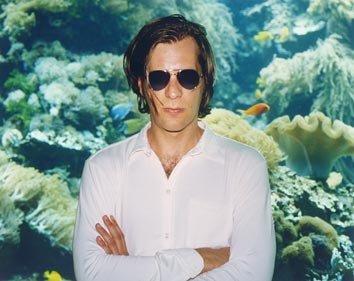
Ah, the view from inside the solitary urinal of male subjectivity, again.
Well, poor old Dave Keenan is getting it in the neck from all directions. Still, you don't have to be Jacques D to see how Keenan's discourse
("If pop music is daytime, a nine to five soundtrack regulating work and consumption, then noise is its night…. In contrast to music manufactured under the surveillance glare of pop, noise provides a cover of dark that encourages both experimentation and criminal acts. Noise generates the perfect conditions for interrogating control and jamming its channels. Noise is the meltdown of logic. And it refuses the notion that everything is consensual, that communication is paramount, that music must be about pleasure." )
is structured around binary oppositions
(daytime night
glare/ light darkness
music noise
logic unreason
consensus dissent
pleasure ???*)
which are sterile and, as Simon said, somewhat superceded...
(I suppose I shouldn't really comment, since I haven't read all of Keenan's piece, still less [uttunul forbid] heard the music, but that would entail paying good money for the Wire, which, let's face it, it isn't worth. If I read the Wire these days, it's in Bromley library.)
It's fitting, given the lone male fetid unemptied ashtray unwashed flesh reek that rises from Keenan's prose that it should have been feminist thinkers like Helene Cixous who did the most with Derrida's critique of binary oppositions. As you know, Cixous famously argued that the principal binary which structures western logocentric thought is that opposing Man to Woman (logocentrism = phallogocentrism). Even if, to be fair, Keenan privileges certain properties usually associated with the cthonic feminine (darkness, unreason), the deeper problem remains in reproducing this oppositional structure at all.
This is especially troubling given what has happened to noise since 1984 (when, as Simon implies, it appears that this piece was written)**. Loveless and successors such as Fennesz are powerful precisely because they melt the oppositions between melody and noise, pleasure and pain, pop and experimentalism, upon which Keenan - and presumably the bands he is celebrating - still trade.
Odd though it is to say it, Keenan might constitute the 00's equivalent of Cool (=boy-curated anhedonic anti-Pop) derided by Morley back in 82 in the piece reproduced by Tom at NYPLM. (I say odd, because DK is not exactly what I think of when I think of 'cool'). Marcello is right to raise his eyebrows at Morley's dissing of the Pop Group, which is significant on a number of levels (the PG then =ed not only Experimentalism but Social Relevance); I'm going to come back to this in a major k-p thinkpiece later on this week.
It seems that what has been lost - if not in Pop itself, but (blogs apart) in the discourse surrounding it and feeding it - is the space between the avant garde and the Popular. The NME and the Sinker-era Wire set up their unhome upon this discontinuum (and set off so many of the trails in this obsessive reader's psyche that ended up here). If the 82 piece sees Morley at his most intoxicatingly - and intoxicatedly - Popist (such that it could serve as a Manifesto, or as MC says, a Bible for Popism), his recent radio show found him much more on avant-Pop, Pop-Art deterritory. At its best, the Avant-Pop aesthetic performs a mutual libidinization, in which the experimental is vindicated by its take-up in Pop, just as Pop is re-invented and inf(l)ected by the experimental. Perhaps unsurprisingly given that Chris Bohn now rules the Wire roost, Keenan's article demonstrates that the Wire has given up on this between and taken to the comforting shadows of marginality. (I know that Fennesz was recently a cover star so it's not all over yet, I guess....)
All the more reason to celebrate the likes of Reynolds, Carlin, Ingram et al who are keeping the avant-Pop spirit unlive...
*What would fit here? I'm all for moving music beyond the pleasure principle, but what exactly is Keenan proposing should take the place of pleasure?
** And this piece was written in 1984, more or less. There was something familiar about that noise = night metaphor (metonym?). It nags me for a while until I pick up Charles Neal's Tape Delay. There it is, introduction 'Bacillus Culture' by Biba Kopf/ Chris Bohn, in which Bohn aligns Noise with 'night-time' culture. (Interestingly, given my gender worries above, that Bohn's main theoretical ref [besides an uncredited Bataille] is Kristeva and her Powers of Horror. )
July 26, 2004
Are the Big Brother psychologists getting more inane?
Or is Psychology genuinely as stupefyingly self-evident as they make it appear? Straight from the Professor of No Shit, this week: 'Nadia has had trouble sleeping... Her sleeping patterns have been broken ... These are clear signs of insomnia.' Really? Fuck, they don't give you a Psychology doctorate for nothing, do they? Some other penetrating insights last night into how 'exposed' and 'isolated' the housemates feel (what, on a reality TV show in which they're denied contact with their family and friends? I can hardly believe it); and that old chestnut about 'Stockholm syndrome' (in which hostages form attachments to their captors). I'm sure they've trotted out that one every series since the first one...
Right. I won't mention BB again this series. I promise.
A SPECTRAL FREQUENCY
Really lovely piece by Kek-w @ Kid Shirt on The Streets' garage-for-students. '... despite its apparent authenticity, its over-pushy, pumped-up realism, it still somehow fails to convince...it's like there's something essential missing from its centre; there's a hole; a gap; a spectral frequency...a feeling that's gone awol from its core, like an old LP digitally-remastered so that it now sounds wrong.' YES! Wholeheartedly agree with all of kek-w's piece, apart from his dissing of the Jam (one of the most unfairly maligned groups in blogdom IMHO) and his praise of Sham 69 obv (I admire Kek-w bucking the trend, but.....)
July 25, 2004
It's all Forgotten Now
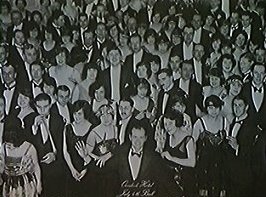
Ian Penman: ‘Technology has made us all ghosts.’
Fredric Jameson: ‘The Jack Nicholson of The Shining is possessed neither by evil as such nor by the "devil" or some analogous occult force, but rather simply by History, by the American past as it has left its sedimented traces in the corridors and dismembered suites of this monumental rabbit warren, which oddly projects its empty formal after-image in the maze outside ‘
You’ve all heard at least on Al Bowlly song.
The one you’re most likely to know is his version of ‘Midnight, the Stars and You’. revived, appropriately, given that this is a song for which the term ‘haunting’ might have been coined, by Stanley Kubrick in his ‘metageneric ghost story’, The Shining in 1980.
Kubrick in fact utilized the song twice in The Shining; once in the Gold Room party scene, wherein a bewildered Jack Torrance, dressed in a Lumberjacket, stumbles confused amid the revellers in their twenties finery; and then, again, over the famous tracking shot which ends the film on a close-up of the photograph, dated July 1921, from which a tuxedo-wearing Torrance grins out.
Kubrick’s selection of music in The Shining is, as ever, exemplary. (I was somewhat surprised whilst reading cinema-sound theorist Michel Chion’s excellent Kubrick’s Cinematic Odyssey recently to note that, in an aside, Chion said that the choice of music in The Shining was poor.)
If The Shining is a film about the influence of the past on the present - or rather, about the simultaneity of past and present, about the non-chronic, non-sequential time which Deleuze and Guattari call ‘Aeon’ - then Bowlly’s mottled recording was chillingly perfect. He already sounds like a ghost.
Bowlly actually made his most famous recordings a decade after the date of the Overlook party but a decade prior to the technological developments which would allow Frank Sinatra’s records to sound so intimately present. There was still, then, a palpable difference between the recording and the live performance, between presence (which the recording both occludes and preserves) and absence.* So while Sinatra still seems spookily present, uncannily contemporary, the audio equivalent of a sepia haze separates Bowlly from us. Even as you listen to them, his records sound like faded memories.
Like so many of Bowlly’s songs, ‘Midnight, the Stars and You’ is itself about memories, about the attempt to hold onto the haecceity, the hic et nunc, the here and now, even as it is stolen by Time’s passage.
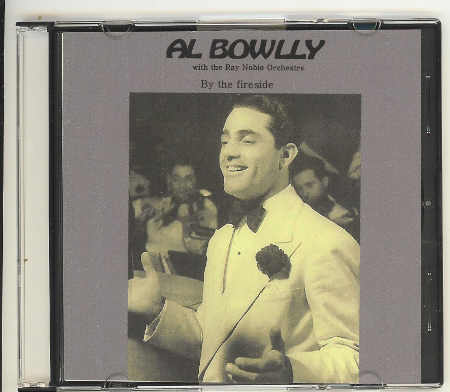
Kubrick used two Bowlly songs in The Shining. The second, ‘It’s All Forgotten Now’, can be heard in the background as Jack speaks in the bathroom with Delbert Grady, ‘the bland and obsequious clean-shaven manservantwhose toneless politeness projects such malevolence through its very inexpressivity’ (Jameson). The irony of the song’s title in this context need hardly be stressed: here is Grady, a man who has murdered his family and then killed himself but who has ‘no recollection of this at all’ (like the father in that dream talked of by Freud and Lacan who, grotesquely, does not know that he is dead). And here is Jack, who, we are informed, has ‘always been the caretaker’ of the hotel but who, similarly, cannot remember being at the Overlook before.
Apart from The Shining, the other context in which you might have encountered Bowlly is of course in Dennis Potter’s The Singing Detective and Pennies from Heaven. For Potter, as for Kubrick, Bowlly’s lovely, honeyed croon becomes synonymous with a past that is, paradoxically, forever lost and forever insistent. In other words, Bowlly gives voice to the psychoanalytic past, whose relics, as Freud says, are preserved by being buried.

Kubrick’s selection of Bowlly’s tunes was no doubt inspired by their Englishness and therefore with their association with the past. Yet it’s worth noting that, although Bowlly made his name in London, he was actually born in South Africa. It’s also misleading to atrribute these recordings to Bowlly, since Bowlly, as was par for the course in the thirties, was not so much the main focus of the band as the featured soloist. Most of his major recordings were attributed to the Ray Noble Band, and both Noble and Bowlly - ‘too big for London’ - would ultimately head over to America, where the success of their records had already created an audience for them.
Nevertheless, Bowlly provided the template for a discreetly elegant English pop, a template discarded and all but completely forgotten once rock ‘n’ roll ripped everything up. I’ve written before of my resistance to the claim that pop is essentially adolescent. Yes, Bowlly’s songs are about romance, but it would be to fall into the most crassly reductive cod-Freudianism to assume that romance must always equal sexuality as processed through rock and roll’s unsubtle amplifiers. Bowlly sings from a time before romance was monopolized by the consumer-culture machined desire of the yet-to-be invented teenager. The desire Bowlly’s plaintive warble embodies is no panting passion, but genteel, courtly, cooing. These songs are, genuinely, as seductive as any ever recorded in pop: swoonsomely, insouciantly beguiling rather than sweatily demanding.
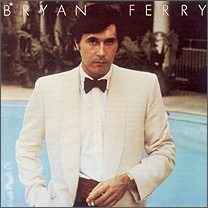
If anyone in English Pop remembers Bowlly, though, it is Bryan Ferry, Ferry who, as Ian Penman so memorably put it, ‘sings as if Rock’s late ‘60s dream of wistful social interference were nothing but an unfortunate lapse in good manners’. When Roxy emerged, all time-scrambled and anachronistic, not so much postmodern as retromodern, or modern retro, they sounded like they could have been the house band in the Overlook . Yet Roxy were more than symptomatic of that incapacity to deal ‘with time and history’ which Jameson identifies of as one of consumer capitalism’s ‘pathologies’. Rather than merely evoking ‘some indefinable nostalgic past, an eternal 1930s... beyond history’, like Kubrick, Roxy interrogated the ‘nostalgia mode’ itself. They were metageneric Pop in the way that The Shining was a metageneric ghost story. In both, Bowlly’s songs of stolen moments and lost time become themselves lost time, a time of authenticity and self-presence now forever gone.
*(It is easy to see why both ghosts. and recording - a ‘science of ghosts’ - should be preoccupations of the deconstructiionists.)
July 23, 2004
On a lighter note...
Blimey, to think that last post was just envisaged as a (slight) response to Simon's shame thing.... 92 comments... and rising...
Anyway, it's good to be proven wrong. I checked out those Marley trax JD was praising in the comments: the lazy iced tea swirl of "stir it up". peter tosh and bunny doing a lovely shimmery curtis mayfield in back. but we'd be talking about the wailers and not marley the icon in that case: a different proposition really. listen to mr. brown, duppy conqueror; or the surging synths of "who the cap fit", on natural mystic. the seductive, slightly lagging, reverbed drums are what gets me. elemental.
They're fucking great. I think my aversion to the Marley I'd heard (besides the familiarity-breeding etc etc, the same problem I had for years with the Beatles and the Who, for instance) was a disinclination towards the anthemic. My nervous system just recoils in horror. That's why I find Bowie's 'Heroes' (the song, not the album) unlistenable, and will never be able to run U2.
But those Marley tracks - sylph-light, spider'sweb intricate and robustly pliant - are lovely.
(Shows his ignorance): are they produced by Perry?
July 22, 2004
From popist to papist and beyond (the pleasure principle)

Simon on guilty pleasures. I second Simon's call for a culture of shame. That's what I was trying to get at in the comments thread. Better punk's unfair and unreasonable hatred than Popism's (or Poptimism's) well-adjusted, laissez-faire, anything goes, if it's good it doesn't mattter what category it belongs to eclecticism, or Jools/Q 'respectfulness' and reverence. Both of these attitudes are intrinsically inimical to excitement/ libido, the first because it transcendentally rules it out (the obverse of 'there's good music every year if you look for it' is that there's never anything to get especially excited about), the second because 'respect' kills culture stone-dead.
Punk's broadbrush proscriptions at least meant that disco/funk/long tracks had to be negotiated back in. And, consequently, their re-inclusion meant something; they were't part of some benevolently oppressive nebulae, which saps the intensity and flava from singular cultural break-outs by incorporating them into a blandly de-odorized popist pot pourri.
In any case, the relationship between a Culture of Shame and Guilty Pleasures is a dialectical rather than a straightforwardly oppositional one. Only with an (at least residual) culture of shame in place is it possible to feel any frission of guilt when you sample (what has been designated as) the forbidden. There is something Catholic about this, as Eppy says. But, rather than a lapsed Catholicism, it's a lapse into Catholicism - in which morbid cult, as Eppy establishes, guilt is pleasure, just as much as pleasure is guilty. But this all presupposes the Puritan/ Protestant reformation initiated by punk.
Zizek explains the complicity between pleasure and guilt by adapting one of Kant's examples. In, I think, The Groundwork to the Metaphysic of Morals, Kant refutes the idea that there is sexual compulsion by asking how we might expect someone claiming to be so compelled to act if they were told that they could have the object of all their desires, if only they submitted to being hanged at the gallows immediately after the copulation. Kant takes it as read that the person's alleged compulsion would melt away pretty quickly. But Zizek, ever the Lacanian, says that this ignores the extent to which many need the equivalent of a gallows in order to experience enjoyment. Only when the pleasure is forbidden, or when there is a risk of its leading to punishment, can it be relished.
Of course, there's a whole fascinating unpicking of pleasure (Foucault), desire (Deleuze) and enjoyment (Lacan) to be undertaken. In which spirit, these extraordinarily intimate and revelatory notes by Deleuze on his problems with Foucault's notion of pleasure, are an exceptional resource.
In other news:
Simon, again, on the trend for painter-related blog names. Marcello is of course a consistent performer here: he started off with a painter(Spencer)-related URL (cookham), moved onto a blog named after a painting (naked maja) before setting up his current painter-alluding residence.
And thanks to Rochenko at Smoke Writing for his kind words on the Whitstable post. I didn't know how people would react to that one, but I do enjoy writing about England. (I could imagine myself blissfully writing for the English tourist board).
THIS ONE HAS IT ALL
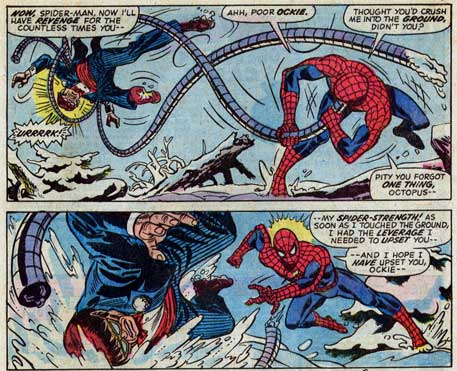
.... as they used to say on the front of Marvel All-Color comics.
But, really, really, this one does.
Romance. Action (that's not Matrix-dull). Humour (that's actually funny). FX (that actually affect). A brilliant cyborg villain (who doesn't white cat about). Fidelity to source material.
SPIDER MAN 2. Do yourselves a favour and see this as soon as possible. It'll remind you of how entrancing and joyous cinema can be.
(I've got to do a 'proper', paying review of this, so I'm going to have to hold myself back a little).
You can trust me on this. Fewer things run deeper in me than Spiderman. I had the comics before I could read. I lived and breathed the mythos and played with the Mego action figures.
It's even better than the first one, and that was the best superhero movie ever made.
HOWEVER:
We all agreed that the trailers for upcoming 'attractions' were just about the worst we've ever seen.
In ascending order of stupefying inanity:
THUNDERBIRDS --- well, you know all about this, but I should lower your expectations even further if I were you . Ben Kingsley white catting about: (rubs chin malevolently) 'But WHO will rescue the rescuers?' Mwhah hah hah!
TWO BROTHERS ---- it's about two tiger siblings. Separated at birth. No, really.
THIRTEEN GOING ON THIRTY --- a thirteen year old girl wakes up one morning to find that, inexplicably, she's THIRTY. With hilarious consequences.
MONKEY TENNIS ----
It left us wondering: what do you have to do to get a script idea rejected in Hollywood these days?
July 21, 2004
MELTDOWN AND AFTER
Well, the big post I had planned today will have to wait, because I lost it - and the whole contents of my hard disc - last night. The machine had been wheezing and spluttering for a while now as I subjected it to my punishing regime of no less than five windows open at any one time and finally it gave up the ghost. So I had to re-initialize the hard disc.
This has its benefits actually. All the cobwed-dusted applications on the hard drive that I never used but which clogged up space have been summarily removed without my having the option of shillyshallying about their deletion ('I might use it one day...') The result is that the machine is leaner, meaner and much more efficient.
Inccidentally, you should have seen the quivering cold turkey wreck I'd become when I was deprived of internet access. Yeh, I'll shoot a child in the head, I'll do anything, JUST GET ME BACK ONLINE: I said to God. Or the Devil.
So, major posts by the end of the week...
btw, could any friends out there please email me coz I obv lost my Outlook Express address book along with everything else...
July 20, 2004
MC ON GUILTY PLEASURES
Marcello, now, sadly, it seems making good on his threat to abandon the k-punk comments boxes (those who've driven him out might do well to reflect on what positive contribution they'e made to discussion here; one of MC's detractors has, as far as I'm aware, only posted comments abusing Marcello), with a response to the now-pulsating Guilty Pleasures debate.
The best and the worst of Marcello here; why the child pornography slight, for instance? And funny that he upbraids Charlie Gillett for being 'schoolmasterly' - 'sit up straight at the back of the bus', indeed!
Marcello seems to know the track listing for the Guilty Pleasures album; a cursory search through Amazon, and couldn't find it.
I agree about much of what Marcello says about BBC Radio London. Robert Elms' show is surprisingly good, and Danny Baker remains one of the most effervescent, flint-sharp witty broadcasters we have (but Marcello is right: hearing his delirial derives interrupted by inane news and traffic reports is keeningly frustrating).
July 19, 2004
CHECK THESE
Simon don't lie (does he ever?) Dripdropdrap is excellent.
(But that font size... It's preternaturally small. I have to whack it up to 200% to make it visible.)
Also: Beyond the Implode. I particularly enjoyed this post on Shaw Taylor's unlikely contribution to Industrial (he also featured in the shlocky but magnificent Richard Burton chiller The Medusa Touch I think) and this one on Coil's Love Secret Domain, which uses the tracks like rhorsach (sp?) blots, triggering skeins of autobiographical associations. (I'm particularly grateful for this post, as I luxuriate in the Coil CDR's the lovely Jon Dale was kind enough to send me).
GUILTY PLEASURES
The Times must have been slipped a few backhanders by Sony, because it devoted no less than three articles over the course of two days to its forthcoming Guilty Pleasures compilation (a spin-off from a spot on Sean Rowey's BBC Radio London show). Of the three articles, it's no surprise that Bob Stanley's is the most interesting.
Even more interesting is the extent to which all three articles demonstrate, once again, how far the print media lags behind blogs.
The two Saturday articles were illustrated by a photograph of David Essex, recently rehabilitated by Marcello (a past master at spotting a gem amidst MOR carboot discards). Then there's Macca, the subject of one of the last Woebot posts. Peter Hammil? Reassessed during the Prog transvaluation last year. Then there's Baal's favourites, Boston and Foreigner.
Stanley rightly attacks Nick Hornby - who is in danger of becoming a straw man in these discussions, albeit one I'm happened to see immolated as frequently as possible - and the oppressively tasteful canon he hawks. He also, equally unimpeachably, lambasts Bob Marley's plodding worthiness. Stanley quotes the headline of a piece on Robert Mugabe (who preferred Cliff Richard to Marley for his inauguration party): 'Would you trust a man who doesn't like Bob Marley?' Well, I'm not sure I'd trust a man who did like him. But then - again, can't fault him here - Stanley goes on to talk up the 'mind-expanding futurism' of King Tubby.
What was slightly puzzling about this, and the other articles, was the vagueness of the implied adversary. Who or what was the nay-saying Master discourse that designated these pleasures as guilty? Sometimes it was Hornby (actually, while we're on this, it's not Hornby, but that boarding school mockney buffoon Phil Jupitus who occupies the lowest circle of hell in my current demonology. I know that Evergreen Jim shares my unreserved detestation for PJ. Have you seen that BBC Six Music commercial he's doing at the moment? Bit of New Order, smattering of ska... Worse than Jools Holland, worse even that Jo Whiley, Jupitus sums up everything suffocatingly smug, safely consensual and eternally studenty about the British pop establishment, the BBC, about the culture in general). Sometimes it was 'Cool' (associated with 'house white labels'). But there's no relationship between Hornby-Jools-Jupitusism and Cool. Indeed, while the former lobby would worship at the shrine of Bob, the latter would cleave to Tubby. I mean, what's puzzling about Stanley focusing on Marley is that La Bob is surely so utterly, incontestably middle-brow as to be naff.
I guess what Cool and Tastefulness have in common is that they both ask you to override your actual feelings about pop in favour of screened and mediated prescribed responses. The lure of the Guilty Pleasures aesthetic is that it says: trust your affects. Enjoyment resumes its rights.
Poor old James Lavelle, though. He's so out of touch that he thinks that Rumours is a guilty pleasure.
THIS IS WHY YOU MUST LOVE HIS WRITING
Attention, Marcello haters: if you can read this and not feel a postive hunger to hear the music desribed, there really is no hope for you.
What a wonderful invocation of the pull of Englishness in his musings on Roy Harper.
Interesting that Marcello should quote Hardy's 'In Time of the Breaking of Nations', Hardy's clinging to an Eternal Englishness in the face of the trauma of the Great War , a poem I misquoted/ misremembered here.
Hardy, particularly his poems, will always hold a special place in my heart. I first encountered him when I was starting my A-levels, and he was instrumental in my discovery that Literature could connect, could be more than a drab academic object of study. (Try studying Norman Nicholson for your O levels, as they were then, if you want to be put off poetry for life).
There's an irony - I'm not sure if it's horrible or appropriately poetic, or both - about the fact that Hardy, who devoted his last years to composing morbid but luminescent elegies for his deceased wife, should have been one of Laura's favourite writers.
The hunger artist
Pyschogeography has two senses. There are two (in)disciplines, and Luke is a master of both.
Just as he's an expert guide through the between-spaces of the city, so he's a practised navigator through different psychic spaces. Some time ago, he wrote that part of the reason he set up heronbone was to deal with his moods, to log them, to track them.
Detailing the Mood very precisely, becoming the Mood, letting it speak, is a way of stepping outside it, a step towards containing it.
Intensive cartography. Spinozism.
July 18, 2004
FAIR WARNING
Anonymous or pseudononymous comments will, in future, most likely be deleted, especially if they involve abusing other bloggers.
If you want to engage in one-upmanship, ad hominems and personal attacks, please find another place to do your worst.
DIM THE LIGHTS

Bryan Ferry, Saturday, Kenwood House
Well, live music in the open air can be good, if (a) there's no mud and (b) it's at night. Since I came away from Kenwood House with, no kidding, nothing worse than a balsamic vinegar stain on my shirt (very Bryan Ferry) you can count me a satisfied customer.
Kenwood House is an impressive setting, a microterrain within Hampstead Heath (itself an improbably vast stretch of controlled wildness in north London), its natural incline making it an ideal setting for hosting live music. The house, which houses Vermeers and Gainsboroughs, imposes its congenial ambience upon an audience that was never likely to have been lured by the prospect of rock and roll excess. Picnics, Pimms, chilled wine, middle-aged parents and their grown-up children lolling out on the manicured lawn, presentable lavatories, concession stalls proferring free samples (hence the balsamic vinegar), it's all very convivial.
Ferry was always going to find the recline into middle-age less embarrassing and traumatic than would the likes of Jagger or even Bowie. Where Bowie's desperate need to continue to appear relevant has grown more unseemly with each passing year, Ferry, never particularly in sympathy with youth culture in any case, just had to retreat into the classicism with which he has always flirted. A gentle shift of emphasis, from the urgent ephemerality of Fashion to the relaxed insouciance of Style. (And quality, they say, never goes out of style)...
To attain Style, Ferry has eschewed, or at least minimized, Art. The conspicuously advertised fault lines and fissures that marked out his Pop(as)Art in the past, the self-referential gestures that allowed him to conceive, coldly, of songs as (Duchampian) found objects or (Hamilton) collages, these have simply been airbrushed out, so that the not-quite-meant-to-be-convincing illusion of organic wholeness can be sustained.
Bowie and Ferry shadow each other, even now, both cancelling recent shows (and Ferry attenuating this one) because of illness; Bowie's heart attack doubled by Ferry's, obviously far less grave, laryngitis. But, for me, there was never a doubt as to who I was going to swoon for in the Roxy/ Bowie friendly rivalry that divided playgrounds in the seventies. It's a brunette versus blond thing, it's an art school versus drama school thing... Bowie always shucked off his skins rather too effectively, would-be tricksterish mutability playing too much like hollow charlatanry for my liking. By contrast, there's always been something irreducible about Ferry, something (about himself and his sensibility) he couldn't escape.

Ferry's schtick has always been, genuinely, the sublime. Prior to rock and roll, pop had a natural affinity with the sublime melancholy that oozes from Ferry's every quaver and wince. He's always been more Bowlly than Presley.
Rock's priapic certainty knew what it wanted (or thought it did), even if it couldn't get it. The Sixties' drive for satisfaction laboured (or pleasured) under the (pre-Lacanian) delusion, that the only problem for desire was what was blocking it. Always a post-man, the reflective roue after the orgy - or the one who, even as he moved in for the kill, anticipated the coming (or post-coming) state of tristresse - Ferry, really, the Seventies Pop icon - was always troubled by the chilly hollowness of achieved satisfaction.
The bride stripped bare. What then?
As the Pawboy - absolutely, and by some distance, the definitive commentator on Roxy* - put it:
'... and isn't the following lyric fragment just about two thirds of Lacan summed up in three or four lines ?
I've been looking for something
I've always wanted but was never mine
But now I've SEEN that something
Just out of reach glowing, very Holy Grail ...
... and on, and on ...
... into the hinterlands of your every future pop disappointment ... and limpid idealisations based on the merest blurriest evidentiary meconnaissance ... ah!, the triumph of spirited self-kiddology over experience as, once more, you set out to chase that spectacular, specular, mechanical bunny round the curve of Desire's never ending bend ... Ding! And they're off! ... Way off ...
With every goddess a let-down
Every idol a bring down
It - gets - you - down.
But your search for perfection
Your own predilection
Goes on ... and on ... and on
... and ON ...
OH - '
Ferry doesn't play that tonight, as it happens. (Perhaps wisely. To give you a sense of where the amiable but inexpert audience was at: 'Do the Strand' received only a smattering of recognition, while 'Slave to Love' was greeted with near-hysterical fervour).
It's because, from the first moment, Ferry understood what the Sixties, with its benign Sadeanism, its take-your-desires-for-reality hedonism, contrived to forget - that beyond the pleasure principle, pain and desire have strange affinities - that he was perfectly in tune with the decade of Glam.
After the unscrubbed earthiness of the Sixties, the inch-thick cosmetics and heady perfumes of the Seventies. Masoch stays Sade's whip hand. Fetishism arrives: a way of avoiding the scandal of female sexuality, according to Freud - a dwelling upon the fabrics and the cuts, on what she is wearing, not what it conceals.
The Sixties colluded with the crudest Freudian reductivism - or reduction of Freud - in insisting that what we really want can be cashed out in biological terms. Glam revelled in desire's complications. Glamour, after all, isn't about sex but seduction. It wouldn't be quite right to say that seduction is opposed to sex, it can include it, but never as a final teleology (no final teleology in seduction). It is the art of deferral, not as ascetic self-denial, but as a means of maintaining the plateau. In the seducer's play of signs, everything - the tiniest micro-gestures - assume erotic charge. Think courtly love, not pornography.

Two of the best received songs tonight - Roxy's 'Love is the Drug' and Harrison's 'Let's Stick Together' - highlight the two sides of the Seventies. Superficially, 'Love is the Drug' would seem to be improbably carnal for a Roxy song. But, listen again: it's all about the thrill of the chase. The camera pulls away just before the money shot. 'Dim the lights, you can guess the rest.' You could hear that as tasteful restraint if you wish, but isn't it really saying: nothing after this is interesting. Who could doubt that love, not sex, is Bryan's fix?
In 'Love is the Drug' you hear permissiveness, still largely an elite preoccupation in the Sixties, percolate out into the wider culture. 'Let's Stick Together' demonstrates some of the consequences of that ubiquitous pleasure. In the seventies, remember, the word 'divorcee' still carried moral overtones. You know we made a vow.... But will they honour it? It's strange that we never seem troubled by that question. Ferry's arrangement of the song, complete with sim-Latino whoops, is so jauntily upbeat that we're distracted from the song's grim deontologic - not, we should stay together because we love each other, but we should stay together because we must.
'Avalon', strangely, may be Ferry's most positive song. Here his customary attachment to pleasure-in-pain, pain-in-pleasure, his lovelorn swooning croon, gives way to something else, something beyond pleasure (naturally), beyond even love. 'Now the party's over', he's exhausted, too tired to do anything but linger in the Moment, her hair, scent, dress, the dance, the sky, the landscape, all of it an absolute superfluity, a more-than-enough, an achingly, necessarily evanescent haecceity. The song, Ferry's version of ambient, is as close to anti-climactic poise as it's possible to be without stopping altogether.
More than that....
there's nothing.
* Read everything here as a footnote to Penman's masterly 'The Shattered Glass'.
July 16, 2004
CUSHING'S WHITSTABLE


I went for a daytrip to Whitstable, on the Kent coast, on Friday.
Whitstable is one of those enclaves of carefully ringfenced Englishness, in which Time is not so much frozen or artificially retarded (cf Prince Charles’ grotesquely kitsch retro-Stepfords) aspruned. Developments threatening the ambience are snuffed out or anticipatively warded off. The new is permitted in provided it doesn’t disrupt the existing hamony; thus modern cottages nestle amidst centuries-old counterparts. Since so many of the houses, bisected by the ‘alleys’ that make the town seem like a labyrinth of warrens, are, distinctively, constructed out of wood, Whitstable almost feels like Old New England.
The ocean always brings sublimity to any seaside town. Its inhuman vastness lures and lulls us into meditative revery that we couldn’t explain at the level of the conscious mind. It’s a cellular thing.
Like most seaside places, Whitstable is in an Innsmouthian becoming with the ocean and its creatures. Think of Whitstable and likely as not you think of oysters.

But there is little of the vulgar sublime, the candyfloss neon carny vivacity, of a Skegness or a Blackpool, here. The air smells of fish, not fried onions. Whitstable is discreetly deproletarianized. I had the impression that the families holidaying here were almost exclusively middle class.
But there were, after all, traces of the vulgar sublime in Whitstable on Friday.
Walking along the winding main street, you come across the modest-looking door to the town museum. Inside, there is an exhibition commemorating the life of Whitstable’s most famous resident, Peter Cushing, who died 10 years ago.
The small exhibition is lovingly curated: film posters, letters from fellow actors such as Lionel Jeffries, Richard Attenborough and Joanna Lumley, examples of Cushing’s model-making, personal effects and photographs are all beautifully displayed.
The Hammer film posters – virtually visual defintions of the lurid – point up the contrast between the films for which Cushing was most famous and the sedately retiring town in which he was resident while he made most of them.
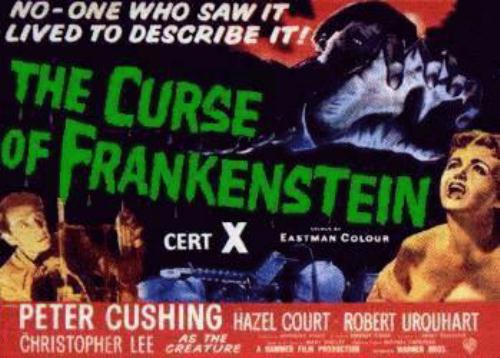
Cushing is the kind of actor that has completely disappeared in Britain, along with the British cinema to which he belonged. Genre film is dead here now. In the issue-led, social workerish cineculture that produces Brassed Off and Bend it Like Beckham, everything is pitched at the middlebrow, at the oppressively sensible conscious mind. The unconscious – that ceaselessly productive machine upon which the pulp energies of Hammer fed – goes ignored, and with it the capacity to propagate myth.
Look over Hammer’s filmography, its most significant moments all featuring Cushing, and you see that it was a pulp factory, a hyperfictional production line. Hammer began by reanimating the fiends (Frankentstein’s monster, Dracula) Universal had electro-shocked into cinematic unlife back in the thirties, adding two new ingredients: technicolour and sexuality. (Universal has itself revived those monsters again recently, of course, in Van Helsing. I can only imagine that this was the disappointing travesty everyone said it was, because I couldn’t bring myself to see it). The Quatermass films were of course Hammer’s. (These films and the adapation of Wheatley's The Devil Rides Out - the mesmerically virile Lee as a thinly-disguised Crowley - were perhaps the only notable Hammer films in which Cushing did not feature.)
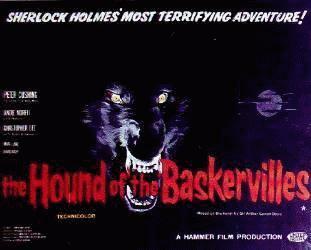
Terrence Fisher remains one of Britain’s most underrated auteurs. He directed Cushing in what is perhaps Hammer’s greatest film, their version of Conan Doyle’s Hound of the Baskervilles, made in the year, 1959, in which Cushing first settled in Whitstable. Fisher’s animistic Dartmoor – all lurking fog and perilous quicksand – is the perfect setting for the ageless battle between Reason and Desire, Civilization and Discontent, that Hammer would play out in endlessly in its version of the Gothic kingdom of the unconscious. Cushing gives the detective an intellect as sharp as his cheekbones, turning in a performance that makes him, for me, the definitive Holmes. The same capacity to embody gaunt rectitude made Cushing almost synonymous with the role of Van Helsing in the Dracula series, where he would play the straightbacked puritan to Christopher Lee’s polymorphously perverse inhuman seducer.
But in the Frankenstein series, it was Cushing’s turn to express a dangerously ambivalent sexuality. The callow, tragic Icarus of Shelley’s novel and the Universal movies – well-intentioned but hubristic - became, in Hammer and Cushing’s hands, an amoral ‘Baron’, marking the shift from nineteenth century Promethean romanticism to a Sixties Sadeianism, wherein Frankenstein’s fervid obsession with uncovering nature’s secrets took on a blatantly erotic dimension.
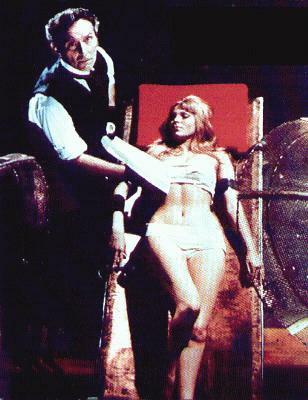
The most evocative aspect of the exhibition for me was the film posters. These vernacular art works were, famously, often better than the films themselves, occupying that same direct line from the eye to the unconscious as did the paintings on the front of ghost trains. As a child, I would fixate upon the film posters reproduced in my Horror books, constructing in my mind terrors far more vividly nightmarish than those in the movies themselves, which, however good they were, could not but be a disappointment when I saw them years later.
Note to self: must find out more about who produced the Hammer film posters.
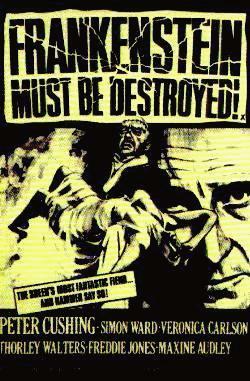
July 14, 2004
LATEST
Joy! My birthday present from my brother just arrived: the whole first series of Terry Nation's Survivors. Will shortly be able to meet my obligation to comment on this missing-till-now k-punk artifact.
Another long-coveted k-punk artifact provided by Mr Oliver Craner, who bought me Nuttall's brilliant Bomb Culture, Britain's answer to Mailer's 'White Negro' and Toffler's Future Shock. Expect more on this soon.
Also posts soon on: Robert Hughes (very belated), Hubert Selby Jr...
Announcements:
Brilliant new Pop Group mp3 blog by the author of this equally brilliant, ultra-authoritative Pop Group site. Add a Pop Group post to my list of promissory notes.
Ray Brassier (you might have read him here a while back with a typically acerbic and incisive commentary on Whitehouse) now has his doctoral thesis Alien Theory up on the Transmat site. Check it!
Gotta go and get ready; I'm seeing Pinter's 'Betrayal' tonight, so expect a post on that too...
SLATE GREY VICTORIAN SKY
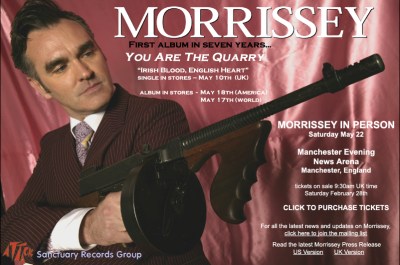
(I suppose all of this is another chapter in the ruinationalist saga started here and here.)
Well, after finally hearing the latest Morrissey album, I have to confess to being surprised at how compelling it is.
It’s nowhere near as plodding or cack-handed as the Streets, nor half as conservative and reactionary as Franz Ferdinand (incidentally, of the many irritating aspects of FF’s success, the absolute worst has to be their invocation in pieces on established, but older stars: I’ve seen them mentioned in broadsheet articles on both Mozza and Bryan Ferry, as if, absurdly, the patronage of a footling, forgotten-by-next-Christmas Indie combo somehow confirms the continuing relevance of these abiding icons).
Relevance, yes. Why does Morrissey suddenly seem so relevant in 2004? Perhaps because anxieties about what it is to English have more than usual currency this year, and not only because of all those denunciations of multi-culturalism, the immigration moral panics and the rise of UKIP.
As it happens, it’s difficult to imagine Morrissey finding much common cause with UKIP, if only because he is less troubled by EUro-encroachment than by coca-colonization. So there he is, on ‘Come Back to Camden’, under the cloudless white bright desert sky of LA, pining for the ‘slate grey Victorian’ skies of North London; there he is, adrift in America’s endless franchise coffee bar (which no longer need be in the States of course), longing for a cup of tea that ‘tastes of the Thames’.).
Maybe it’s possible to imagine that Morrissey is, for once, on the side of the angels in this debate. Perhaps, after all, his vision of a ‘time when to be English is not shameful’ need not, as I complained previously, refer back in time; it could be an anticipation, and one that, with the displacement of the union jack by the less threatening, less loaded St George’s flag, might not be as far-fetched as it might sometimes appeared.
Actually, and perversely, the coincidence of the anti-lad’s return with yet another English failure at football has a certain unexpected piquancy. (We should have known that England were doomed to fail this year. The only time they’ve even approached success in recent years is when the team have gone to a tournament buoyed up by a rousing song – New Order in 90, ‘Three Lions’ in 96: now if only Morrissey, and not those arch-plodders The Farm – who exhumed them, I wonder? – had done the England song this time.) Yes, Morrissey’s love of failure and ineptitude, his hapless, more-than-half-in-love-with sadness, not-quite-able-to-extinguish-hope yearnings, in fact everything Simon identified so long ago in the classic ‘Against Health and Efficiency’, has everything to do with the version of Englishness to which he cleaves. (The definitive English football song remains – and will probably always remain – ‘Three Lions’ largely because of the aching, masochistic melancholy it associates with Englishness. Where Lad meets Sad? ‘Thirty years of hurt’ is of course the key line – but just like Morrissey, the song can’t entirely relinquish hope - the next line, remember, is ‘never stopped me dreaming.’)
English failure and rock have been bound together from the start. In Lipstick On Your Collar Potter tried to bring alive the moment of cultural crisis which Morrissey’s whole career has memorialized: the double trauma for England of ’56, of rock and roll and Suez, when Presley’s tics and twitches made available not only a new pallet of pleasures , but, with them, indissoluble from them, an unassailable American hegemony; and if the future was American, after Suez, England could no longer doubt that it was the past.
This goes some way to accounting for Morrissey’s attachment to the wrought-iron, ration-book existentialism of the Fifties, the decade in which the remains of English imperial pride were sucked down the kitchen sink. The post-Beatles Swinging Sixties, when the Beatles had temporarily, misleadingly, restored English confidence; you never find Morrissey there. The cramped, netcurtained, monochrome vignettes he scratches out have their centre of gravity in an England that that never will, nor ever could leave the Fifties, (considering a Sixties cultural moment with an obvious Morrissey association - Billy Liar - will bear this out. Billy’s refusal to get on the train is as much a denial of 1960s modernity as it is of the metropolis. I choose not to go = I choose failure and unhappiness = I choose the North = I choose the past.)
Thus Morrissey, the ailing Englishman abroad, the stranded grotesque whose pale skin was not meant to be cooked in the Californian heat, thus Morrissey in 2004, turns his sights first of all, on You are the Quarry, to his adopted homeland. ‘America is not the World’ doesn’t tell us anything we don’t know – about Morrissey or about the world. ‘You know what you can do with that hamburger’: It could hardly be called biting satire, it could hardly be called witty. Yet it’s a restatement of intent, and one that finds Morrissey, perhaps as never before, in tune with mainstream opinion. Post Empire, post Iraq, Anti-Americanism has seldom been so fashionable. What makes Morrissey’s song more interesting is the, pained ambivalence on which it ends. ‘But I love you’, he guiltily confesses, as if America is, as it is for most of us, an errant lover we can’t castigate enough but which we’ll never escape (nor fully want to).
And then ‘Irish Blood, English Heart’, its companion piece, both bullish and plaintive, Morrissey’s latest rallying cry. Let’s not confuse Morrissey’s calls for a non-baneful Englishness with the BNP’s demands for the celebration of St George’s Day. Or rather: let’s not damn them because there is a certain crossover of aspirations. There’s a perfectly good anti-racist argument for allowing English ethnicity to speak its name, after all. The assumptions (expressed sotto voice, but unmistakably there) behind so much multi-culturalism weirdly duplicate those of imperialism: other people have ‘cultures’; we are normal. Only if Englishness was allowed to show itself could anglo-WASPishness be ‘de-normalised’, only then could it cease to be a transcendent judge of difference and take its place amongst the heteroglossic riot of differences. Call me sentimental, but I was heartened, around the time of Euro 2004, to see the amount of young kids, first maybe second generation immigrants, their mothers sometimes in traditional muslim garb, decked out in England football shirts. And no, I’m not celebrating a ‘melting pot’ in which all differences are subsumed into a bland stew of deracination. What I’m calling for is simply an acknowledgement that dynamic cultures are not static monoliths, but dialogues, ongoing and inexhaustible provide they resist calcification into sterile orthodoxy.
You are the Quarry is musically modest, a kind of generic Morrissey drabGlam that reminds me, on occasions, of Denim. Yet every track has a memorable tune (and there are Smiths’ albums about which that couldn’t be said). There’s nothing new here (imagine how shocked and appalled we’d be if there were). There’s definitely a Morrissey trap: Tim does very well in identifying some of its comforting but slowly lethal lineaments.
It’s not true, however, as Tim claims, that everything that went wrong with Indie began with Morrissey. Sure, Morrissey was a major player in the retreat from experimentation, in the shift in the meaning of the term Independent’ from designating a space, an open potentiality, to it being reduced, in every way, to the diminutive ‘Indie’, the most drearily formulaic genre in contemporary pop. Yet, unlike The Stone Roses or Oasis, Morrissey dramatized his anachronism; there was no danger of our forgetting that we were sandbagging ourselves up against (post)modernity, retrenching. With the Stone Roses and Oasis, we were obliged to forget this, to pretend that they were urgent, contemporary, unprecedented. The rot really started there.
Maybe this serial killer is a serial killer of serial killers
Proper posts tomorrow, but for now a few bits and bobs:
1. Most popular recipes from my birthday party on Saturday
Roast beetroot with honey and rosemary
(Try this one even if you don't think you like beetroot)
Ingredients
1 lb raw beetroot, peeled and cut into quarters
2 tbsps olive oil
2 cloves garlic, peeled
1 dessertspoon dried rosemary
salt and freshly ground black pepper
2 tbsps clear honey
1 tbsp balsamic vinegar
Instructions
1. Preheat the oven to 220 C, 425 F, gas mark 7.
2. Place the beetroot in a roasting tin with the garlic cloves. Sprinke over the oil, rosemary and seasoning. Roast for 45 minutes.
3. Remove the drizzle on the honey and vinegar. Return to the oven and roast for a further 20 minutes.
Tunisian almond and orange cake
(courtesy Sophie Grigson; quick, easy but delicious)
Ingredients
45 g (1.5 oz) slightly stale breadcrumbs
200g (7 oz) caster sugar
100g (3.5 oz) ground almonds
1.5 tsp baking powder
200 ml (7 fl oz) sunflower or vegetable oil
4 eggs
Finely grated zest of 1 large orange
Finely grated zest of half a lemon
Syrup (you can make it without this):
juice of 1 orange
juice of half an orange
85g (3 oz) sugar
2 cloves
1 cinammon stick
Instructions
Mix the breadcrumbs with the sugar, almonds and baking powder. Add the oil and eggs and beat well. Stir in the orange and lemon zest. Pour the mixture into a greased 20cm (8 in) cake tin.
Put into a cold oven and set to heat 190C (375F, gas mark 5). Bake for 40-50 minutes until the cake is a rich brown an a skewer inserted into the centre comes out clean.
Cool for 5 minutes in the tin then turn out onto a plate.
While the cake cooks, make the syrup. Bring all the ingredients gently to the boil in a pan, stirring until the sugar has dissolved. Simmer for 5 minutes.
Pierce holes in the cake with a skewer while still warm and pour the syrup over it. Leave it to cool, spooning the syrup over the cake every now and then until is soaked up.
2. How low is TV sinking?
I didn't watch it, but how's this for a line from a BBC 'drama' last nigh? Trevor Eve: 'Maybe this serial killer is a serial killer of serial killers.' Was this co-scripted by Chris Morris?
3. Things that made me chuckle
Meant to mention this a while back, but huh's reference to 'Rachel Stevens and her Hegel-via-Z
Also, Oliver on literal laugh-out-loud form with his tales of oysterless adventures on the buses...'Eez not my problem'...
(btw, he's right about the view of forests from my flat, but, sadly, there are no parrots. Wild boar, though, absolutely, there's plenty of them. Bromley, it's wild.)
July 07, 2004
LUKE'S LONDON
We're not messing about now, people.
Those 'lull' posts of a while back were profoundly misleading. The network isn't dying, far from it. Look around you, it's obvious now that 'cyberculture' doesn't just have to mean Wired-reading corporate silverbacks or dysfunctional geeks. Only rearview mirrorism prevents us from seeing that blogs are part of a new cultural configuration that is unique as it is unprecedented. If blogs were initially parasitic on other forms and other media (isn't anything when it first emerges?), they've now established a space of their own. For, ultimately, blogs are nothing but space. Space is plentiful out here: you get the opportunity to stretch your legs, develop a style, a conceptual repertoire, luxuries that are increasingly rare in the overcrowded print world.
These reflections have been prompted by the return of the maitre, but if he's the clearest case of a cultural production that has no equal outside k-space, he's by no means the only example of the phenomenon.
But I defy you to find any contemporary writing as accomplished as this anywhere. Perhaps it was the enforced period of deprivation sharpening my palate, but it seems to me that Luke has returned more powerful than ever, his proetry sharper, more honed, with even less redundancy. Nothing wasted.
The verdant plenitude of NZ is easy meat for an imagination as developed as Luka's. Not that I'm in any way decrying a post that bristles with resonant imagery and a sage's insight. He's our Marker, the discoverer of an omnipresent sf immanent to our irretrievably artificialized nature . 'Unnatural nature. Against a New Zealand background, familiar birds, like sparrows or blackbirds can appear ever so slightly out of sync with their surroundings, as if superimposed onto them, like a movie star playing his part in front of a blue screen. Something hasn’t gelled. The land and the creature don’t belong to one another. The mind won’t accept them as part of the same picture.'
But for all the magisterial qualities of Luke's post on his mother's homeland, his greatest strength lies in surveying the scurf zones of the city in which, like all its best poets, he is both completely at home and half-an-outsider, his beloved London. So here is, walking, always walking, disconnected from the media matrix, that smothering extra nervous system that does all your seeing and feeling for you, hunting for haecceities, alchemically transfiguring the city's trash into shimmering epiphany. 'all the litter is ten years old. the remains of burnt newspapers. fragments of old stories. old sporting failures and coups in hot countries. cans of McEwcans lager, R.Whites lemonade and Golden Wonder crisp packets emblazoned with superceded designs and discarded logos. The colours are fading. fading engrams. as the colours seep away so do their place in the memory. here you can see the last remnants of the recent past decay.' Luke's London is becoming as immediately identifiable, as vividly realised as Blake's, Sinclair's or Moorcock's: a London of abandoned towpaths, overgrown relics of the near-past, teeming dereliction.

Join Luke on one of his riverside walks from Stratford and you're often reminded of Tarkovsky's Stalker: nature reserves towered over by electricity pylons, semi-mythical turtles swimming under fetid water clogged with crisp packets. Like Tarkovsky, Luke disdains the easy option of rhapsodising 'pure' nature, preferring to explore an industrial sublime in which human dereliction commingles with a tenacious, indestructible flora and fauna. If they could see past the end of their gangster-loving noses, the inbred custodians of the justly ailing Britfilm industry would recognize that there's a ready-made movie set all around them. But you'd need Luke's eye to detect (or project) all those micronarratives, the steampunk traps, the still-warm memory trails, the half-concealed possibilities.
Luke makes you see the world anew, again. What more can you ask of writing than that?
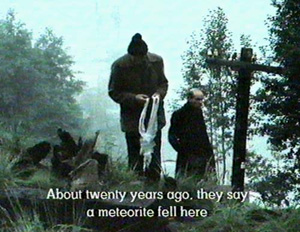
July 06, 2004
Marcello with a neat response to k-punx Moloko post. I'm going to respond to it here rather than in the KRDTHM Comments box, because, frustratingly, blogger is still preventing me from using its comments facility.
Canonization may be overdue, but k-p and Pillbox (peace be upon him) did moot it a year ago.
I'm hoping that Moloko's playing Common Ground was less a sign of declining success, more due to the fact that they were the only decent-size band the festival could afford. I assume that the budget was potlached on them, hence the rest of the bill was full of village fete turns, has-beens, and never-should-have-beens.
Yeh, there's no denying that their output has been patchy --- but the singles, particularly the later ones, have been consistently excellent.
I agree about Presley's 'Blue Moon' too: has there ever been a more desolate(d) recording?
(I really like this new interactive Marcello....)
July 05, 2004
'PREDICTIVE' TXTS
Other people must have this absurd 'predictive texting' function on their mobile. Obviously I disable it on my phone, but have you ever tried using it? You type in 'o' and it decides that what you really wanted to type was the word 'pot'. What exactly is it 'predicting'? A piece of Surrealist automatic writing subjected to Burroughs' cut-up technique? There seems to be no rhyme or reason governing its suggestions. I'd love to known what principles were used to programme it.
CHEFS AND POP
M'sieu Ingram on chefs and music... (3/7/04) I agree, apart from two things:
1. 'Before them it was Alma Coogan and Frank Sinatra, shit in other words...' Alma Cogan, OK, rubbish, but Frank Sinatra shit? Wash out your mouth with soap, young man! (Watch out for imminent k-punk post on Sinatra, Al Bowlly and Edward Hopper...)
2. Delia = Dylan. Not sure about this one, primarily because of my well-known aversion to Bob. Coz I love Delia.
And where does that River Cottage fellow fit in? I like that programme.
ART POP, NO, REALLY

If we’re going to discuss art pop, we really ought to forget Franz Ferdinand and Scissor Sisters and talk about Moloko.
I saw them last night at the otherwise desultory Common Ground festival in Clapham, an event whose line-up was as limp as its name was uninspired.
Gratifyingly, by the way, Common Ground wasted no time in confirming all my prejudices about festivals (and then some): those on the stage haplessly attempted to muster some enthusiasm from bored punters, who wandered around listlessly in a sunlight inimical to pop’s mystique, Strongbow in their hand, kid on their shoulder. We weren’t the only people to sit and read the paper for a while.
The bill was shocking. It felt like a local council free event, the organizers under the lamentable misapprehension that they’ll appear ‘with it’ by booking ‘dance’ acts such as the oppressively lumpen stodge of Freestylers (a candidate for my worst band ever, actually; I mean, at least the Stereophonics don’t taint rap and dancehall by association) and the Dub Pistols. These cloddish white appropriations of hip-hop, drum ‘n’ bass and dancehall are dis-spiritingly, missing-the-point funkless and morosely male (even when they use female vocalists). If their diabolic intent was to systematically convert some of the most exciting, cutting-edge music of recent years into a dull migraine thud, they couldn’t have done a more ruthlessly efficient job.
And then Moloko arrived, Rosin, preposterously but marvellously, in a helmet, like Boudicca come to retake London.
Roisin is every inch the pop star. Pop stars are a rare breed at the best of times but they’re scarce to the point of near-extinction now. (There are more pop singers and ‘celebrities’ than you can stick at, of course…) It’s partly a question of style, partly of glamour, but mostly it’s to do with charisma.
In its original meaning, charisma meant ‘a gift from God’. Appropriate. For charisma is dispensed according to fate’s inegalitarian whim. Roisin has it. No amount of bluster, sweat or sinew will allow the likes of the Freestylers to acquire it, even though the resentful, leveling spirit of the times would have it otherwise.
So Roisin arrives and you can feel the change in the air. Where before the stage was a libido-draining vortex (DJs on stage – just one question: why?), now it radiates energy, excitement and electricity. Charisma, it’s almost a physical thing.
Roisin has a glamour which includes sexual attractiveness but it is not reducible to it. Glamour originally meant a spell cast by women to entrance men – Roisin is certainly capitivating, but not only to men.
If (viz Foucault) sex is ubiquitous and compulsory, glamour is now subtly forbidden. With the Baudrillard of Seduction, a book which could serve as a bible of glam, we could even see sex - in all its directness, in all its supposed lack of concealment - as a way of warding off glamour’s ambivalence.

Much more successfully than derivative dullards like the thankfully now forgotten dull-as-a carpark-in-Croydon Suede, Moloko reconnect with the glam discontinuum which was ostensibly terminated by acid house’s ‘equity culture’ in the late eighties. Glam also had a terminator of an entirely different nature: hip hop’s in-equity culture of conspicuous bling, one of the most unfortunate side-effects of which has been the rise of sportswear (surely one of the most depressing sights now, and not only because of its implied menace: a group of male teenagers dressed in tracksuits and hoods).
That quotidian functionalism is today’s equivalent of the agrarian organicism from which Seventies glam revolted into style. Glam repudiated hippie’s ‘nature’ in the name of artifice; disdained its fugged, bleary vision of equality for a Nietzschean-aristocratic insistence upon hierarchy; rejected its unscrubbed beardiness in order to cultivate Image. (Image and great pop are indissoluble. Maybe the integral role of Image is what separates Pop from folk. Certainly, art pop, from Roxy to Jones to the New Romantics, is unthinkable outside fashion.)
Madonna carried traces of the glam aesthetic over into the pop mainstream in the eighties, but a more obvious precursor for Roisin is Grace Jones (about whom k-punk must write extensively in the very near future). Like art poppers such as Bryan Ferry (whose ‘Love is the Drug’ she famously vamped), Jones’ take on pop was essentially conceptual; at the same time, she knew that concepts without sensual instantiation are as worthless in pop as they are in art (a lesson some of our contemporary ‘artists’ would do well to heed). Incidentally, an appreciation of the concept is one of the many things that Franz Ferdinand lack that was there in their inspirations. (Actually, FF are like a copy made by an alien race, which maintains all the superficial features of the original, but misses the essential).
Roisin has that paradoxical duality which comes as second nature to the compelling performer: she is both meticulously obsessed with her image and, at the same time, apparently indifferent to what she looks like. This comes over in her dancing. There is none of the over-rehearsed choreography of the Pop Idol puppet. Like Jagger’s and Ferry’s, Roisin’s movement can occasionally look ungainly and gauche. Sometimes we feel that we’ve caught her prancing in front of the mirror.
It’s partly this that gives her a distance from her image that isn’t camp, or at least not camp in the Kylie sense. There is an enjoyment there (this is one of many things that separates Roisin from Kylie: Kylie’s air hostess professionalism exudes grim determination, never enjoyment). Principally though not of course exclusively, this enjoyment is her own, an enjoyment that partly derives from being the object of attention, but which goes beyond that. Like all great performers, Roisin onstage enters a kind of performance trance, attaining the innocence of a child at play, to use Nietzsche’s beautifully resonant phrase. Her costume changes – including fetish boots and a military cap for ‘Pure Pleasure Seeker’ – have the deranged playfulness of a girl riffling through a dressing-up box.

Just as Moloko give the lie to the accepted wisdom that dance music must be delivered by hooded anonymities, so they also expose the flimsiness of the alibi that Franz Ferdinand offer for indie conservatism: the idea that art pop must be retro. Moloko’s engagement with house and techno recalls Roxy’s dallyings with funk and Jones’ extraordinary Sly-and-Robbie assisted construction of a wonderfully elastic dubfunk. Any funk in FF is third hand, an appropriation of an appropriation.
The third shibboleth that Moloko demolish is the notion that dance music can’t be performed live. If you’d left before they came on, you would have gone home convinced that this was the case, as group after group trudged offstage having failed to capture the precision-engineered thrill of the rap or d ‘n’ b studio production. Not so with Moloko.
For the most part the group are as reluctant to take the limelight as Roisin is delighted to bathe in it. Perhaps because of this, they are an unbelievably efficient mutagenic sonic machine, dilating tracks into anti-climactic plateaus with the same skill that a brilliant producer uses in the studio to sequence an extended version. You know you’ve arrived at a plateau when it feels like the track could continue indefinitely or end immediately. This happened with every track last night. No doubt this is because the songs provide such a strong basis for improvisation. Does anyone in pop at the moment, apart from maybe Destiny’s Child, have a sequence of high-quality singles to rival Moloko’s run from ‘Sing It Back’ to last year’s ‘Forever More’? Like the Junior Boys, Moloko’s whole existence demonstrates that rhythmic innovation and spine-tingling songwriting do not have to be mutually exclusive. (Why did we ever think they were?)
Misleading, then, to select highlights, but the set is deftly constructed, so that the last three tracks pack the most impact: ‘Forever More’, with its anempathic house bass , Roisin plucking and shredding petals from an enormous bunch of roses as she delivered its gorgeous blues plaint; ‘Sing It Back’, which they’ve expanded into a deluxe suite, a song as a sequence of different possibilities; and finally the enigmatic ‘Indigo’, which begins all Moroder-minimal, just Roisin, a drum machine and an electro throb, then builds into a mighty cake-walk riff, as brutally bass-heavy as The Fall at their most punitive.
The only drawback? Roisin said that it’ll be a long time until Moloko play in London again.
Damn.
July 03, 2004
COIL REQUEST
Can anyone help? I've heard one or two Coil tracks, and I want to explore them further but they've got so many albums I don't know where to start. Any recommendations?
Also, are there any good introductory articles on them available on the internet?
July 01, 2004
LINX REMIX
You might have noticed that I've rearranged the links on the sidebar into (no doubt spurious) categories. This largely for my own benefit; as it was, I got lost and ended up furiously scrolling up and down when looking for a link.
If either
(a) your link has got lost in the re-arrangement
(b) you violently object to my categorization of your site
let me know ...
THOSE WERE THE FACTS. WHAT THEY CREATED WAS THE FICTION.

Marcello's also right about the Paul Morley Vox Pop documentary. Everyone should check this out while it's still online (for the next six days I think).
The documentary takes almost exactly the same journey he plotted in Words and Music, but much more engagingly. Partly this is due to the materiality of the sounds: on the radio, the journey has a physicality that it lacks on the page.
Morley's notion that there are alternative histories of rock - not imaginary histories, but histories equally as valid as the official, well-worn join-the-dots road stretching from the Beatles to Radiohead ('the teenybop avant-garde', PM claims) - this notion is immediately liberatory.

Things didn't have to end up here (=The White Stripes). In fact, and more importantly, in fiction, things never do end up anywhere. Everything is always in the middle.
Morley is well aware of the power of fiction, of fictional histories, the hyperstitional force of sonic fictions. The negative magic of the blues and Beatles ur-myth resides in its power to keep on (re)producing music that fits in with the template (thereby reproducing the myth itself).
Morley's alt.history turns out to be a profusion of histories:
Cage===> Stockhausen====> Can ====> Kraftwerk ====> Moroder ====>Kylie
VU ====> Eno ====> Bowie ====> Destiny's Child
etc., etc.
Morley demonstrates, without stooping to make the point explicit, what's so laughable about the NME calling what they are championing 'art rock'. If Radiohead are the teenybop avant-garde, Franz Ferdinand must be the Student Union Josef K. As someone who took the social journey across the tracks (with sound his great educator), Morley keeps faith with the old artschool dream of not only reconciling high-art with pop, but of discovering a deep and irreducible complicity between them. PROLE ART THREAT!
One of many fascinating observations by one of the many fascinating companions Morley takes with him on (this version of) the journey. Peter Hammill: the best music, the best art, can, no must, be both serious and humorous. And yet if you look at the most populist PapPop today, it's so po-faced. (Is there anything more po-faced than a boyband ballad?)
Incidentally another Morley nugget I turned up whilst googling for a PM image: this questionnaire about his reading preferences.



